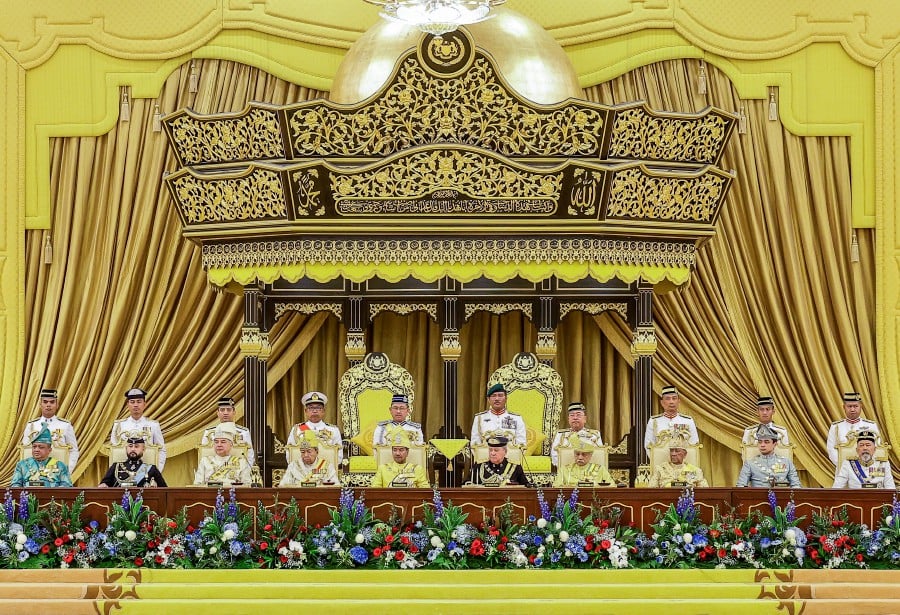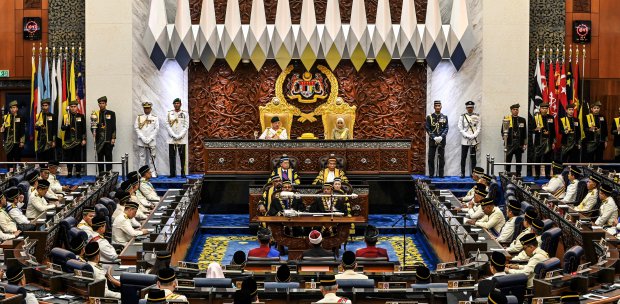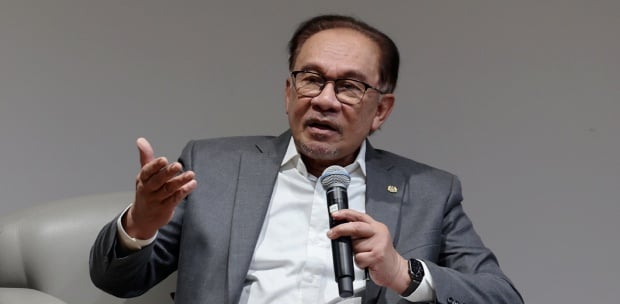His Majesty Sultan Ibrahim King of Malaysia has ascended the federal throne at a very challenging time. At 66, Malaysia, a developing nation with ambitions of being a developed one, stands trapped in between. And our politics is inadvertently keeping us there.
Sure, Malaysian politics gives the appearance of stability, but subterranean developments — such as the "Dubai Move" and politicians switching allegiance — do occasionally seep to the surface to tell another story.
We had long decided that it was immoral to jump parties before it became illegal. And laws, as we all know, come with loopholes. Several politicians, having discovered these, switched support but not parties. Clever, but still immoral.
Granted, the government of the day needs a five-year permanency in Putrajaya to take the country to a good place. Some politicians think a law is the best tool to ensure such durability. This may stand in the way of democracy.
Members of parliament, no matter which side of the aisle they are from, must be given the right to challenge the government of the day, even if it means by a vote of no confidence. This is what parliamentary democracy means.
In this seeming-and-being nature of Malaysian politics, His Majesty's ascent to the federal throne is timely. His Majesty's just and firm royal hand would do a better job in giving Malaysian politics the sturdiness it deserves than the law being proposed.
Politics isn't the only challenge for the new monarch of Malaysia. Corruption is another, which has been crying for cure for the longest time.
Sadly, two enforcement institutions that were conferred the "Royal" title — the Royal Malaysia Police and the Royal Malaysian Customs Department — have been grabbing the headlines, with its officers being accused of corruption.
It's not just these two institutions, but heads of many more who are appointed by the king must buck up.
The top management of both the police and Customs Department have repeatedly assured us that they are doing everything to stop their men and women being involved in the scourge. And just as repeatedly as the assurance, reports of police and Customs officers being involved in corruption make it to the news.
To be fair, some have been disciplined and others charged. But still, the scourge dons a uniform or two, every now and then.
Perhaps, it is time for a royal reprimand. The title "Royal" conveys esteem, and institutions which are given such a position of rank, must act with the responsibility the honorific demands.
The Royal Malaysia Police and the Royal Customs Department aren't just made of the top management, though they, as leaders, must shoulder much of the responsibility to see to it that they are clean. But more than that, it is also the responsibility of the men and women of integrity in the police force and Customs Department to blow the whistle on their tainted colleagues.
In this way, they can help save their institutions and the country from reputational damage. To be sure, law is a deterrence. But it requires evidence to succeed in court.
Moral compass is better, but this often gets waylaid by greed. We are all created innocent. But the world of life and work throws some off course.
A reset of this to a "factory" setting, so to speak, is necessary. Better a reset than a royal reprimand.





